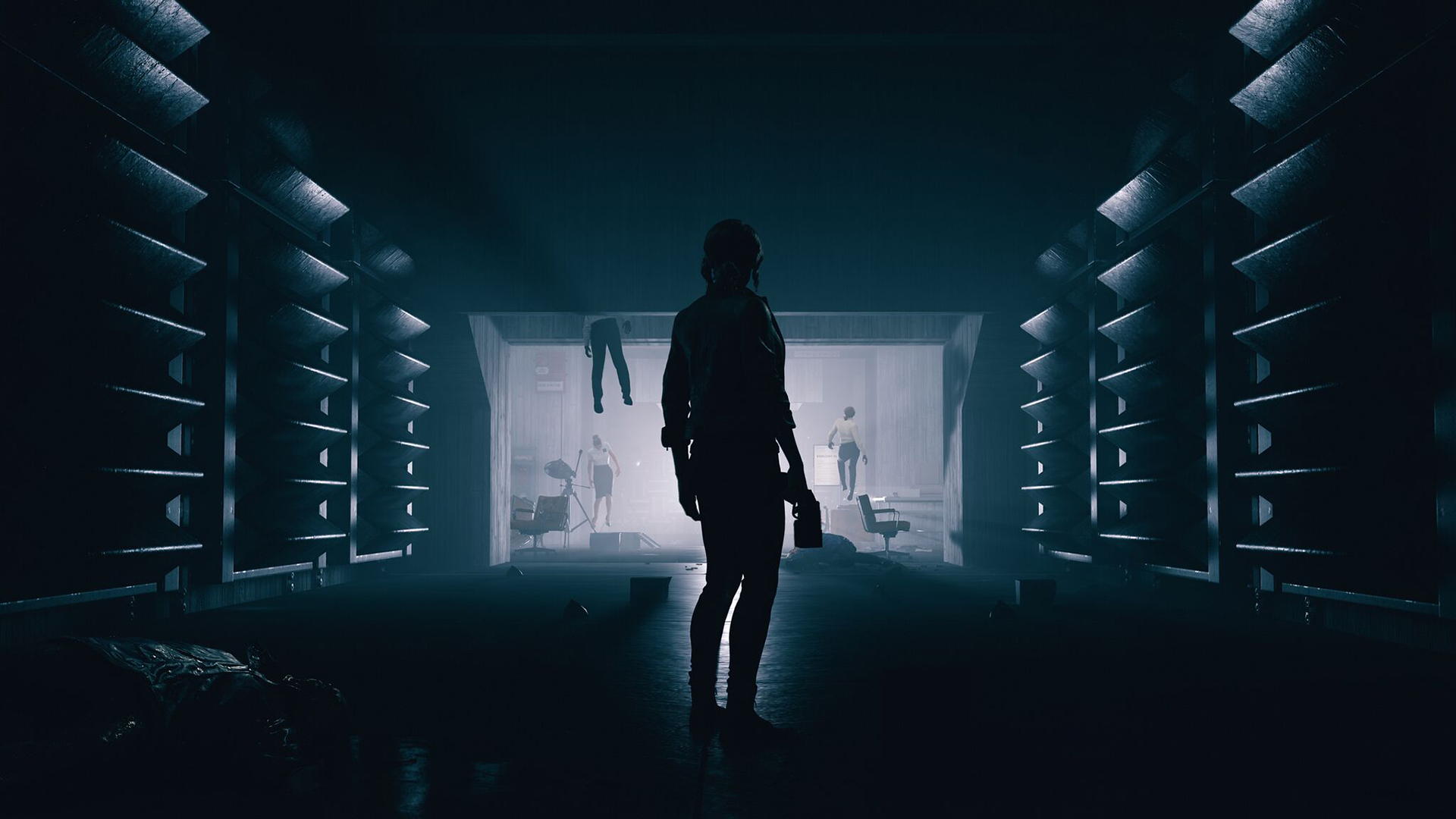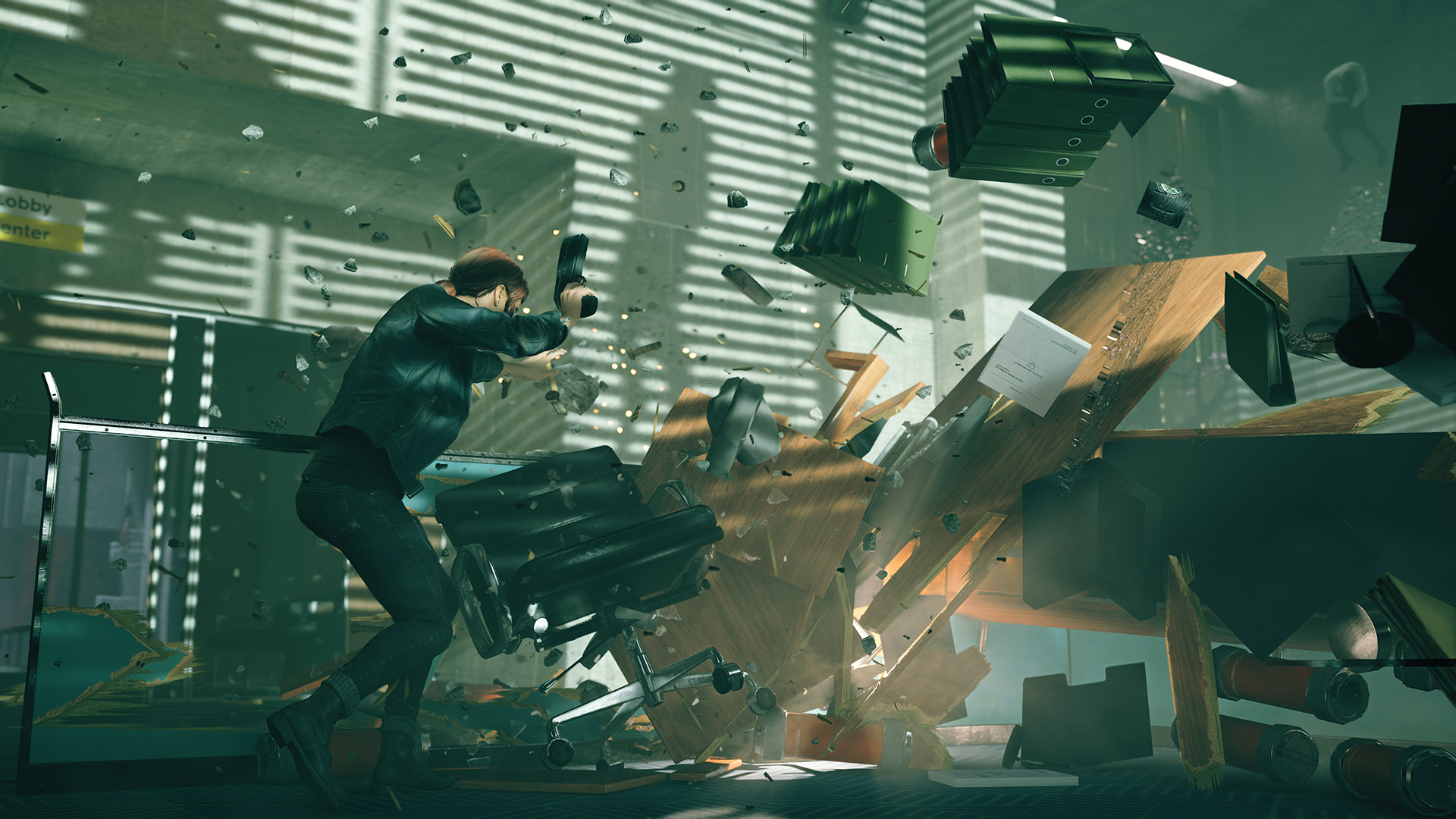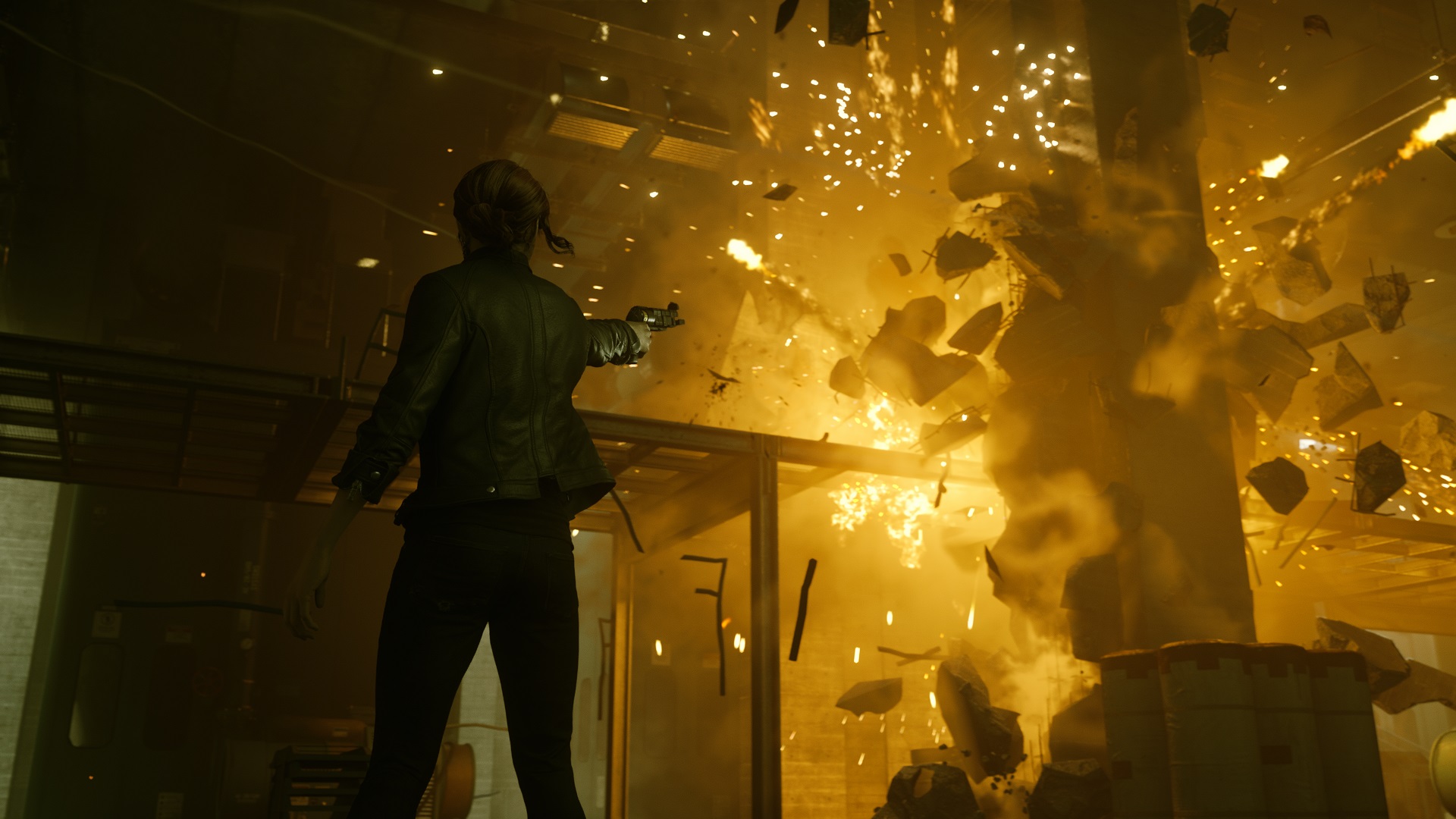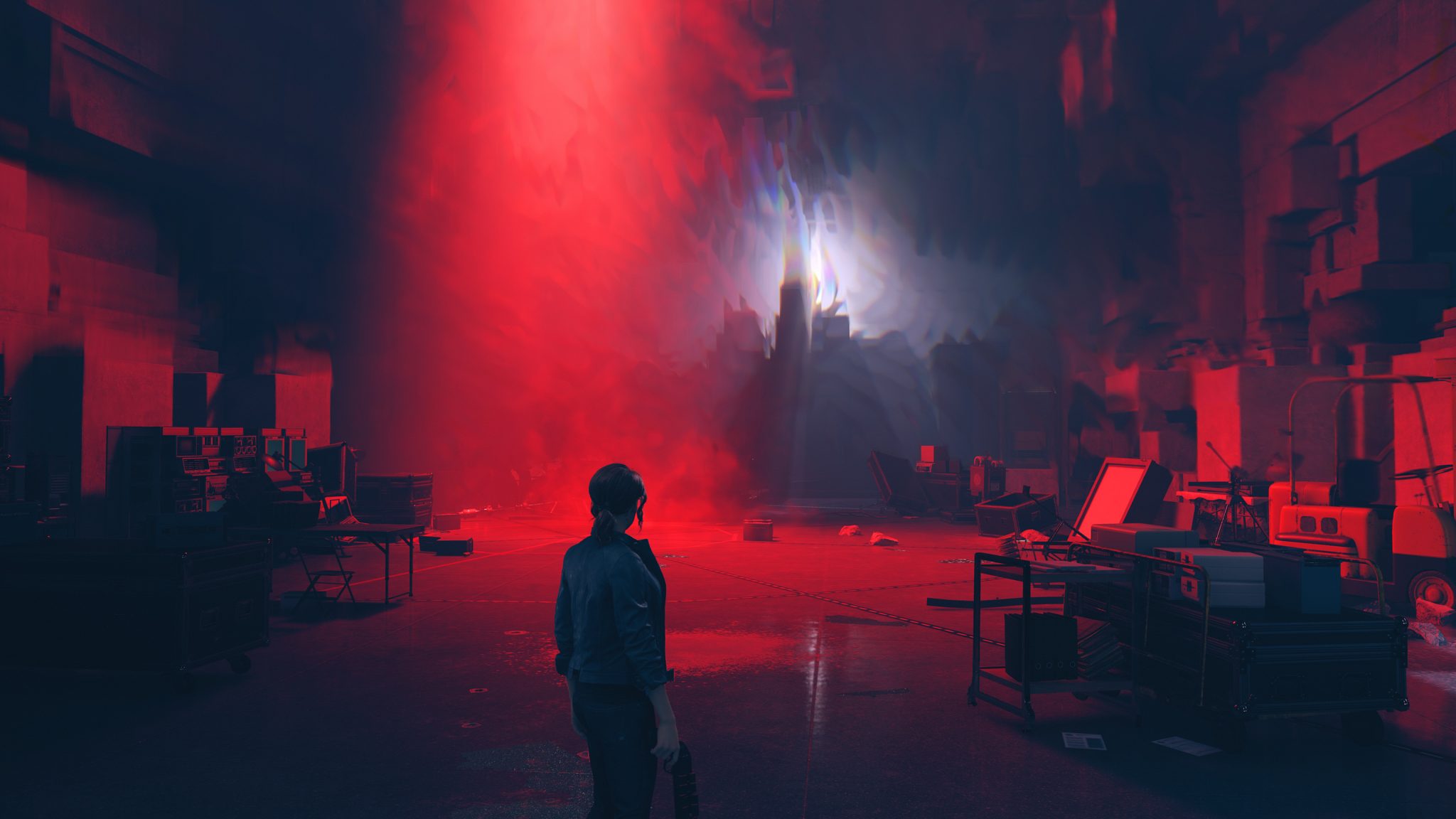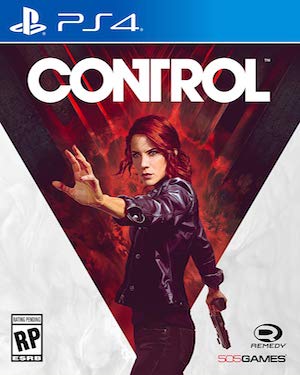
Control is a game to look out for. With stunning visuals, a keen eye for set pieces and design, and an utterly creepy atmosphere filled with creatures that go bump in the night, it’s no wonder the developers at Remedy Games have really put there all into this game. We had a chance to sit down with Game Director Mikael Kasurinen and Narrative Designer Brooke Maggs to ask them a few questions we’ve been dying to learn about this next big IP.
"Coming up with a compelling world, compelling characters, ideas for the supernatural that we often feature in our games- once we have those ironed out and we establish a direction that is clear and striking, we start to put these pieces together. "
The imagery of Control looks visually striking, but how do you as developers ensure that it translates to an equally unusual gameplay experience?
I don’t think there’s a silver bullet to that, necessarily. It’s us spending time figuring out other core concepts of the game. Coming up with a compelling world, compelling characters, ideas for the supernatural that we often feature in our games- once we have those ironed out and we establish a direction that is clear and striking, we start to put these pieces together. There’s a lot of testing, iterations, seeing what works. It’s a big process to find something. Then they’re happy accidents; we try something out and it looks totally different. It still looks cool, but then we massage it to work with the rest. It’s a combination of predictable and unpredictable things. The key is that you keep at it and refine until you’re happy with the end result.
Keeping with the topic of Control’s imagery- it seems very well suited to virtual reality. Is that a consideration?
No, not really. The game is so fast-paced, based on the very physical movements of the character. I think it would be quite a nauseous experience if we were to translate this to virtual reality. Interesting question, though. It makes me think, “Should we do something like that?”
Everything we’ve seen of Control so far exhibits that hallmark of Remedy game, of vivid and almost psychedelic visuals, which we’re sure will play a big role in the narrative as well- but it seems like it’s all been cranked up to 11. Do you think it’s just been a natural progression, and you’ve continued to take on the lessons you’ve learned with previous projects, or were there other influences outside of your own work that you also looked to specifically for this game?
Yes, I think so. The way that Control began with world development as well as gameplay development and things like that. Because it’s a brand new IP we wanted to create— “What is this world?” “What genres are we inspired by?” The visual design for the Oldest House by our world director— he’s very specific about brutalism architecture, which also includes the way environments are leaked. So yes, there’s been a natural progression, I think.
It also feeds into each other. It’s also a stark contrast to Jesse. Like Jesse is an ordinary woman with experience of the supernatural in her childhood. Her brother goes missing, the bureau has taken her brother, and she is there to uncover what happened to him. She’s not a stranger to the supernatural, but this place is very government bureaucracy, scientific understanding of things — where she’s more intuitive of these things. She is a stark contrast to this place, which adds more interest to her journey as director of the bureau.
"With Quantum Break, we tried to find a good balance between cinematic style and gameplay. But it often led to compromise we wanted to avoid. "
What lessons have you taken from Quantum Break that you’ve implemented into Control?
With Quantum Break, we tried to find a good balance between cinematic style and gameplay. But it often led to compromise we wanted to avoid. In Control, we, for instance, kind of rethought how to capture animation in the sense of the control you have over the character, and so on. Everything is way more responsive, immediate, clean and clear. The gameplay is more aggressive, more involving, you need to really pay attention and learn, invest yourself into the experience to succeed. Initially it could be a challenging game, but once you respect what it’s putting in front of you, it’s a lot of fun. I think that’s one thing that we wanted to make more, something that demands participation from the player— so it’s not just something that you run through and you’re done.
We also explored new ways for Remedy to tell stories. So there’s a lot more environmental storytelling, audio logs to uncover, documents, we have side missions in Control, which is new to Remedy games. [Previous games have] largely been tailored, beautiful, linear, single-player games. Where is with Control, we have this open-ended world, which means you can come across side missions earlier in the game, documents point you towards things to investigate.
We also have a story where you can ask characters more about aspects of the world, and how they’re involved in them. So I think Control’s a different game in that sense. There is more storytelling that was live-action in Quantum Break. We still have live-action in Control— that is a part of Remedy games. But we’ve used it in a more specific way, I think. It’s more integrated into the world than what we did in Quantum Break.
Given your emphasis on storytelling in games as a studio, have you ever considered empowering the player to influence how the story plays out in your games? Did that ever come up for Control?
In Control we’re here to tell one specific story of Jesse, what she goes through, and what she needs to do to be able to deal with the situation that she finds her self in. We have side missions— it’s not like there’s choices branching within these different plots, but there are multiple different plots you can experience in this game. No narrative choices, that was a very clear decision that that’s not what we wanted to do.
About how long would you say an average playthrough of Control would be?
We don’t have any accurate measurements because it’s a complicated, large game that can be played through in multiple ways. But the overall numbers that we’ve got, if you play the main campaign and do a few side missions, it’s like 15 to 20 hours.
"At the moment we’re really focusing on Control. Alan Wake is our IP and we all love Alan Wake. Let’s leave it at that, at this point."
What can you tell us about the game’s progression system?
There are multiple different progression systems in the game. We have one main weapon that we call the Service Weapon, it’s a shape shifting gun, basically. You can unlock more different forms for that weapon, but you need to find materials in the game world to be able to— or constructed them, is the word we are using. You can find modifications for the weapon, so it will amplify [attacks] that are exclusive to different forms. And different forms can do things like pierce, like it just goes right through the environment. There’s a close range attack, and so on. Then you have modifications that are part of Jesse. Modifications can make some of her abilities more powerful.
Then we have the abilities themselves. You can acquire abilities by finding more power and you bind them to yourself. You go through a trial called the Astral Plane. And once you manage to pull that off you’ve acquired that ability— and [the ability] launch, where you’re able to throw things around, is one of those abilities. Then you have ability points that you get through the game by completing missions, so you can unlock upgrades for specific abilities. Each ability has a simple little tree for it. So you can unlock new perks for it or make the ability itself more powerful.
Are there any plans for post-launch story DLC?
We have expansion plans, but those are for later. I think we announced that we have two expansions. But we don’t have an accurate schedule for that yet. These will complement the story of Control and extend it rather than finish it up. So Control in and of itself is a complete story.
Do you think Control can be a franchise?
We’re looking at all of our games as launcher worlds and universes of their own. We’ll see how things go but that’s the case for all the games.
Now I have to ask this question. Do you think we will ever get Alan Wake 2 and Quantum Break 2? What are the difficulties in getting these two sequels up and running?
At the moment we’re really focusing on Control. Alan Wake is our IP and we all love Alan Wake. Let’s leave it at that, at this point.
What resolution and frame rate is the game running on the PS4 Pro and Xbox One X?
Can’t talk about that yet, sorry.
"Of course, we all love more powerful hardware. It allows us to do creative, striking visual things, and so on. Especially, because we as a studio, strive for really high fidelity."
Both the PS5 and Xbox Scarlett are now confirmed to have SSD. How will this help you to improve game performance?
Well, having an SSD is fantastic because it deals with a lot of streaming issues that games tend to have. I’m with everybody else, I hate those slow moving elevators where you need to wait until a new part of the world loads up. Or awkward tunnels that you have to walk through. Getting rid of all of that is good news for everybody. And of course, we all love more powerful hardware. It allows us to do creative, striking visual things, and so on. Especially, because we as a studio, strive for really high fidelity. We’re down for technical and visual achievements as well. So I think that’s good news.








